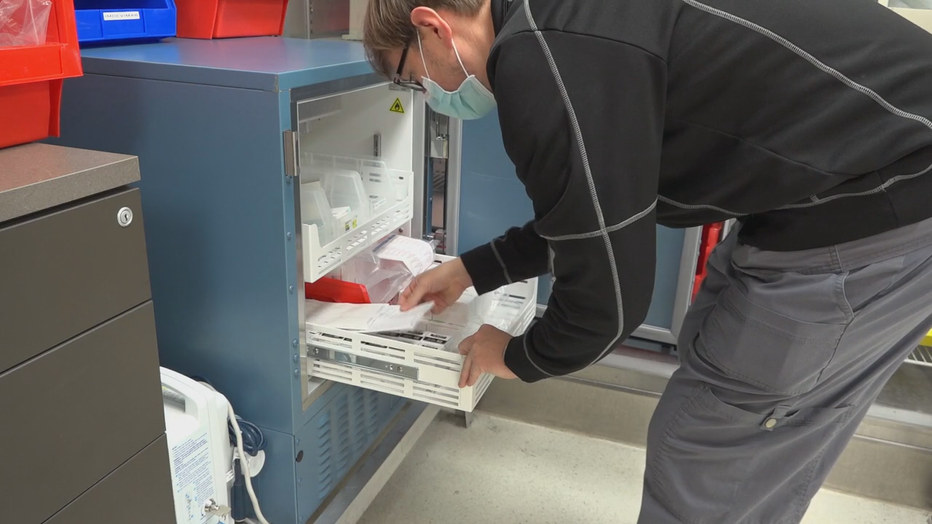Monoclonal antibodies can save lives of sick COVID-19 patients, study finds

Monoclonal antibodies can save lives of sick COVID-19 patients, study finds
Researchers at Baylor Scott and White that conducted trials on monoclonal antibodies found the antibodies can not only prevent severe illness but also saves lives.
DALLAS - Researchers at Baylor Scott and White that conducted trials on monoclonal antibodies found the antibodies can not only prevent severe illness but also saves lives.
The study found that people with mild to moderate illness who get the monoclonal antibody treatment early have very good outcomes when it comes to avoiding severe illness or dying from COVID-19.
The study’s results come as hospitals are seeing more people sick with the COVID-19 Delta variant that is very aggressive.
"The first wave of variants that we saw with coronavirus back last year when this pandemic started are like running on lawnmower engines. This particular variant is like a 454 big block engine. It really has a lot of horse power and its very virulent, its very transmissible and it certainly has all of us in health care very concerned," said Dr. Mohanakrishan Sathymoorthy, Chair of Internal Medicine, TCU-UNTHSC School of Medicine.
The number of unvaccinated is exacerbating the problem with the variant.
"The vaccines are designed to prevent three things -- severe COVID, long COVID and death. So hospitalizations, long COVID and death, the vaccines do that extremely well," said Dr. Robert Gottlieb, Baylor Scott and White Research Institutes. "We have vaccines that can prevent someone from getting extremely ill, but we need a backup because not everyone's had the vaccine as yet."
Gottlieb is co-author of the just published study on neutralizing monoclonal antibodies to treat people sick with COVID-19.
"We can decrease the risk of hospitalization or worse by somewhere between 70 to 87 percent," Gottlieb said.

The trial had 1,035 patients who were followed 85 days. Half got monoclonals half got placebo. Only 2.1 percent were hospitalized who received monoclonals, compared to 7 percent in the placebo group.
He said 12 people died who did not receive the monoclonals, but none of the patients that received the monoclonals died.
"In January we knew that we could treat the virus and decrease the virus levels. But I’m a physician. I don’t want to treat a virus, I want to treat a patient and now we know we have the hard clinical outcomes to know not only do we decrease the virus levels, but we do the clinically meaningful actions of decreasing hospitalization and improving survival," Gottlieb said.
But the best defense is taking the shot and avoiding a serious infection.
"You're about seven times less likely to get infected with one of the vaccines, particularly the messenger RNA vaccines, and you're about 20 times less likely to get a serious illness," Sathymoorthy said.
RELATED:
COVID-19 antibody treatment being distributed across Texas
Clinical trial underway at Baylor Scott & White on lab-manufactured COVID-19 antibodies

